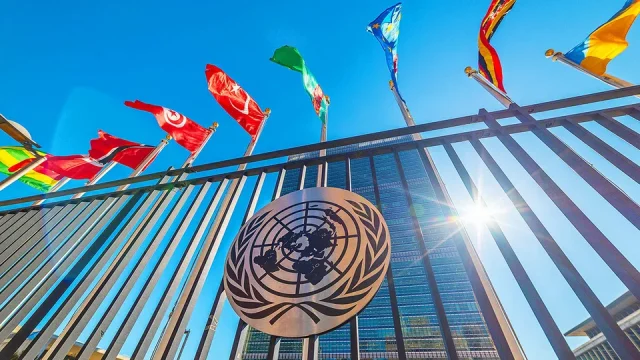The United Nations may run out of money to pay staff and suppliers by September, with peacekeepers facing a similar problem by mid-2025. This is due to a large projected deficit and a leaked White House plan to stop funding the organization. According to reports, the UN’s financial issues are worsening.
In 2024, the UN’s shortfall is just $200 million. But by the end of 2025, without budget cuts, it could hit $1.1 billion. The Economist reports that this huge gap will make it impossible for the UN to cover salaries and bills by September.
The U.N. is billed to inform its member states Saturday that its $3.7 billion budget intended to help it avoid default had already been slashed by 17%, according to the outlet. The U.N. reportedly will pause hiring new staff because of the cuts. U.N. peacekeepers risk becoming unpaid by mid-2025, Secretary-General António Guterres reportedly warned in February.
Stringent budget rules and defaulting member states have left the U.N. cash strapped. A leaked Trump administration memo proposing to stop the U.S. from making mandatory contributions to the U.N. could bankrupt the body, according to the outlet.
The leaked April memo proposed an end to U.S. funding of the U.N. and its peacekeeping missions, as well as NATO and 20 other organizations. Also proposed were a 54% cut in U.S. humanitarian aid and a 55% cut in global health funding, according to the Washington Post. Congressional approval over the proposal reportedly remains to be seen.
President Donald Trump also signed an executive order Feb. 4 to withdraw U.S. membership of the U.N. and review the nation’s involvement in various international organizations.
U.N. mandatory dues — apportioned to member states based on the relative sizes of their economies — sustain the U.N.’s core functions, including General Assembly meetings, peacekeeping and human-rights monitoring, The Economist reported.
Late payments by some member states and shirking by others contributed to the funding crisis. Only 49 out of the U.N.’s 193 member states paid their mandatory dues on time in 2025.
The world’s two largest economies — the U.S. and China — are also the U.N.’s two largest contributors, with each contributing about 20% of the organization’s overall funding.
China, however, has begun to fall behind on payments, The Economist reported.
















